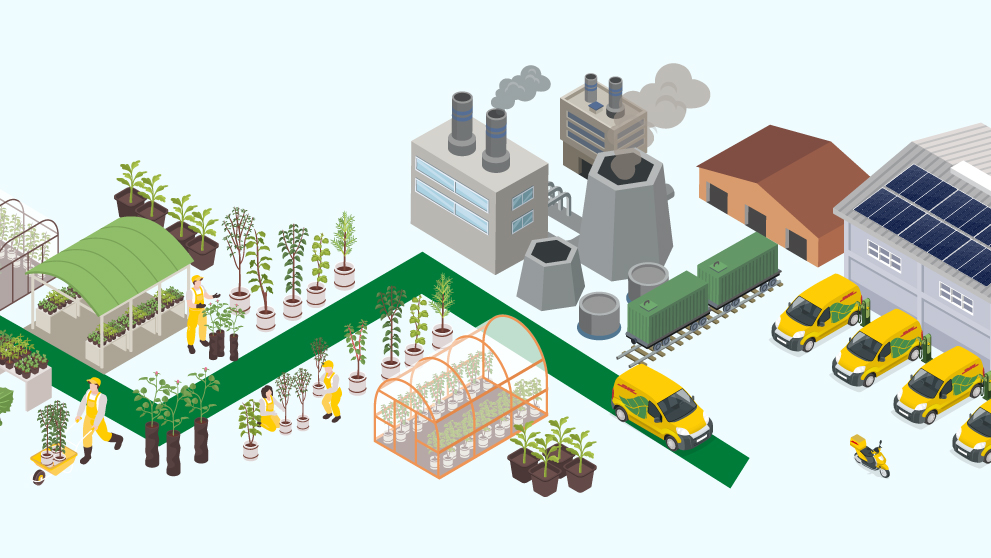The global fashion industry is witnessing a transformative shift towards sustainability. As the environmental impact of traditional textile production processes becomes increasingly evident, the demand for sustainable fashion is rising. This trend is reshaping the textile industry across the world. Today, we turn our focus towards Thailand, a burgeoning epicentre of green fashion, to explore how this country is leading by example.
The growth of sustainable fashion in Thailand
Thailand's fashion industry is experiencing a revolutionary change. Traditional textile production methods are being replaced by sustainable alternatives, laying the foundation for a more eco-conscious future. Thai fashion brands are not just adopting eco-friendly textiles but are innovating ways to promote sustainable fashion.
From sourcing sustainable fabrics to promoting recyclable clothes and recycled textiles, the fashion industry in Thailand is at the forefront of fashion consciousness. A wave of slow fashion has swept the industry, as Thai brands embrace principles of ethical fashion to reduce the environmental impact of their operations.
For example, Pipatchara, a Thai fashion brand is gaining recognition for their commitment to sustainable fashion. The brand sources its leather from an ISO-certified factory in Arzignano, Italy, noted for its environmental responsibility in water usage, waste disposal, air emissions, and electricity consumption. Moreover, the leather is a byproduct of the local meat and dairy industry, meaning it doesn't contribute to additional farming. This thoughtful approach to sustainability aligns Pipatchara with other conscious Thai brands, carving a path for eco-friendly fashion.
Addressing environmental concerns in the textile industry
The conventional textile industry, while pivotal to the global economy, carries with it a myriad of environmental challenges. Notably, the significant energy requirements, increasing volumes of textile waste, and the prevalent use of detrimental chemicals are major concerns that cast a long shadow over the sector.
Responding to these issues, the green fashion movement emerged, charting a path towards a more sustainable future. This movement is not just a trend but a necessity, dedicated to tackling these environmental challenges head-on, transforming the way we produce and perceive fashion.
Fundamentally, green fashion champions the idea of sustainable clothing and eco-friendly processes, offering solutions that are as stylish as they are conscious. It underscores the reduction of textile waste, endorsing the recycling and reuse of materials whenever possible. This crucial shift sees an increase in recyclable fabrics and recycled textiles, which are central to the philosophy of sustainable fashion.
Furthermore, green fashion encourages the adoption of sustainable fabrics, urging the textile industry to transition away from harmful materials and instead harness eco-friendly alternatives that have less environmental impact. This change is not just beneficial for the planet, but it also aligns with the growing fashion consciousness among consumers who are increasingly seeking out eco-friendly clothing and ethical fashion choices.
Setting a global example for sustainable clothing
Thailand's green fashion industry is poised to inspire global change. By showcasing how beautiful, high-quality clothing can be produced without compromising the environment, Thailand is paving the way for sustainable textiles worldwide. With an increasing number of Thai fashion brands adopting sustainable practices, Thailand is setting a new, green standard for the international garment export industry.
The path to achieving a sustainable textile industry requires collaborative efforts from everyone involved. Businesses, in particular, have a significant role to play in this transition. Here are some steps businesses can take to boost sustainability in textile exports:
1. Adopt eco-friendly materials
A key aspect of sustainable fashion is the use of eco-friendly textiles. This not only reduces the environmental impact but also adds a unique selling proposition for your products. Materials like organic cotton, hemp, recycled polyester, and Tencel have a much lower environmental footprint compared to traditional fabrics.
2. Reduce, reuse, recycle
Reducing textile waste is another crucial component of sustainable fashion. By reusing and recycling materials, businesses can not only reduce waste but also create unique and eco-friendly clothing. Encouraging consumers to return old clothing items for recycling can further amplify these efforts.
3. Invest in energy-efficient production
Transitioning to energy-efficient production methods is an effective way of promoting sustainable clothing. This could mean investing in machinery that uses less water and energy or using renewable energy sources for power.
4. Ethical production and fair trade
Ethical fashion ensures fair wages and safe working conditions for workers. This is as important as environmental considerations in defining sustainable fashion. Businesses should ensure their supply chains adhere to fair trade principles.
5. Collaborate with sustainable logistics partners
Lastly, partnering with logistics providers committed to sustainability, such as DHL Express, can ensure that your shipping practices resonate with your sustainability goals. Our GoGreen programme offers eco-friendly delivery options to ship your clothes, shoes and bags internationally, aiding in your transition towards a greener future.

























